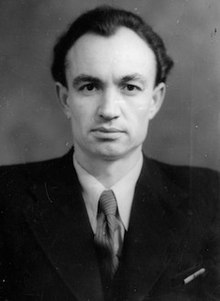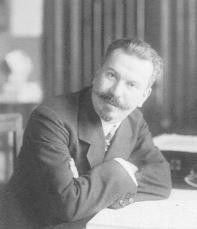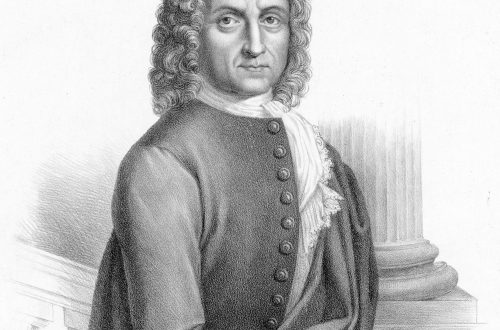
Nazib Zhiganov |
Contents
Nazib Zhiganov
Songs, in my soul I have grown your seedlings …
This line from Musa Jalil’s “Moabit Notebook” can rightfully be attributed to the music of his friend and creative associate N. Zhiganov. Faithful to the artistic foundations of Tatar folk music, he found original and fruitful ways for its living relationship with the creative principles of world musical classics. It was on this foundation that his talented and original work grew – 8 operas, 3 ballets, 17 symphonies, collections of piano pieces, songs, romances.
Zhiganov was born into a working-class family. Having lost his parents early, he spent several years in orphanages. Lively and energetic, Nazib stood out noticeably among the pupils of the Ural Pioneer Commune with his outstanding musical abilities. The desire for serious study leads him to Kazan, where in 1928 he was admitted to the Kazan Musical College. In the autumn of 1931, Zhiganov became a student at the Moscow Regional Music College (now the Music School at the Moscow Conservatory). Creative success allowed Nazib, on the recommendation of N. Myaskovsky, in 1935 to become a third-year student at the Moscow Conservatory in the class of his former teacher, Professor G. Litinsky. The fate of major works created in the Conservatory years turned out to be enviable: in 1938, in the first symphony concert, which opened the Tatar State Philharmonic, his First Symphony was performed, and on June 17, 1939, a production of the opera Kachkyn (The Fugitive, lib. A Fayzi) opened the Tatar State Opera and Ballet Theatre. An inspirational singer of the heroic deeds of the people in the name of the Motherland – and this topic, in addition to “Kachkyn”, is devoted to the operas “Irek” (“Freedom”, 1940), “Ildar” (1942), “Tyulyak” (1945), “Namus” (” Honor, 1950), – the composer most fully embodies this central theme for him in his top works – in the historical and legendary opera “Altynchach” (“Golden-Haired”, 1941, libre. M. Jalil) and in the opera-poem “Jalil” (1957, lib. A. Faizi). Both works captivate with emotional and psychological depth and genuine sincerity of music, with expressive melody preserving the national basis, and a skillful combination of developed and integral scenes with an effective through symphonic development.
Zhiganov’s great contribution to Tatar symphonism is inseparably related to opera. The symphonic poem “Kyrlai” (based on the fairy tale “Shurale” by G. Tukay), the dramatic overture “Nafisa”, the suite Symphonic novels and Symphonic songs, 17 symphonies, merging together, are perceived as bright chapters of the symphonic chronicle: images of wise folk tales come to life in them , then captivating pictures of native nature are painted, then collisions of heroic struggles unfold, then music draws into the world of lyrical feelings, and episodes of a folk-everyday or fantastic nature are replaced by the expression of dramatic climaxes.
The creative credo, characteristic of Zhiganov’s composer’s thinking, was the basis for the activities of the Kazan Conservatory, the creation and management of which he was entrusted with in 1945. For more than 40 years, he led the work of educating high professionalism in its pupils.
On the example of Zhiganov’s work, the results of a truly revolutionary upheaval in the history of previously backward pentatonic musical cultures of the national autonomous republics of the Volga region, Siberia and the Urals are comprehensively revealed. The best pages of his creative heritage, imbued with life-affirming optimism, folk-like bright intonational characteristic of the musical language, have taken a worthy place in the treasury of the Tatar musical classics.
Ya. Girshman
Compositions:
operas (production dates, all in the Tatar Opera and Ballet Theater) – Kachkyn (Beglets, 1939), Irek (Cvoboda, 1940), Altynchach (Zolotovolosaya, 1941), Poet (1947), Ildar (1942, 2nd ed. – Road Pobedy, 1954), Tyulyak (1945, 2nd ed. — Tyulyak and Cousylu, 1967), Hamus (Chest, 1950), Jalil (1957); ballets – Fatih (1943), Zyugra (1946), Two legends (Zyugra and Hzheri, 1970); cantata – My Republic (1960); for orchestra – 4 symphonies (1937; 2nd – Sabantuy, 1968; 3rd – Lyric, 1971; 4th, 1973), symphonic poem Kyrlay (1946), Suite on Tatar folk themes (1949), Symphonic songs (1965) , Nafis Overture (1952), Symphonic Novels (1964), chamber-instrumental, piano, vocal works; romances, songs, etc.





